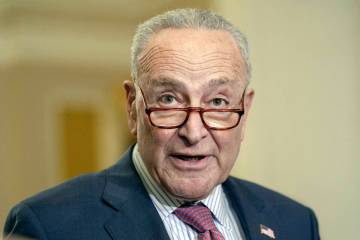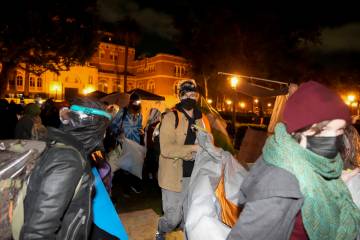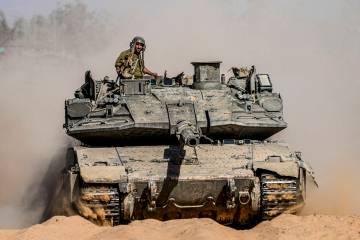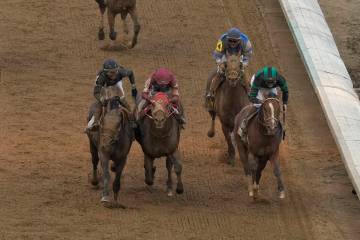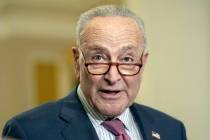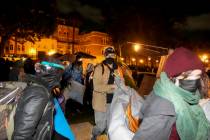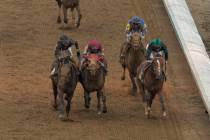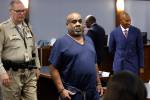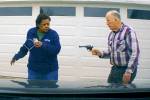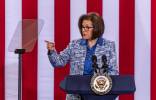Mexican Mafia charged with running gangs from LA County jails
LOS ANGELES — Leaders of the notorious Mexican Mafia “gang of gangs” were charged Wednesday with running a government-like operation to control drug trafficking from inside Los Angeles County jails that included ordering violence against those who didn’t obey.
The U.S. attorney’s office charged 83 people in sweeping racketeering conspiracies that alleged they ran drugs and carried out violent assaults and murders.
“These cases have delivered a major blow to the Mexican Mafia and leaders of many of the street gangs under the control of the organization,” U.S. Attorney Nick Hanna said. “By taking out the gang members who control the jails, and by disrupting their communications network, we undermined the Mexican Mafia’s ability to coordinate street gang activity.”
Prosecutors said the gang — an organization of imprisoned Latino street gang leaders who control operations inside and outside California prisons and jails — was able to control smuggling, drug sales and extortion inside the nation’s largest jail system.
Indictments detailed how the “gang of gangs” had begun in Los Angeles in 1950s at a juvenile jail and had grown to an international criminal organization that had a methodical system to communicate from behind bars, control gang territory and collect “taxes” for drug sales through extortion.
“These Mexican Mafia members and associates, working together to control criminal activity within (LA County jails), have become their own entity or enterprise and effectively function as an illegal government,” an indictment said.
Drugs smuggled into the prison by facilitators of the Mexican Mafia leader were required to be sold first, with the proceeds going to that leader. Other groups that brought in drugs had to give a third of their contraband to the Mexican Mafia leadership.
The fee, known as a “thirds” tax, gave the name “Operation Dirty Thirds” to the investigation that led to the indictments and arrest of 32 people early Wednesday. Another 35 defendants are in custody and 16 were fugitives.
The indictments said the gang enriched itself through drug sales, collecting taxes on drugs and even collecting a share of purchases from the jail commissary. It was able to exert control by threatening and carrying out violence if people didn’t pay up or follow the rules.
The indictment alleges crimes that occurred between 2012 and 2016, when a grand jury was convened and before President Donald Trump took office.
Trump has focused on gang violence but has singled out MS-13, pointing to gang’s gruesome crimes in a push for stronger immigration policies.
The majority of the crimes listed in the indictment released Wednesday are alleged to have been committed by members of the Mexican Mafia, a separate gang.
The indictment said Jose Landa-Rodriguez and two now-deceased members of the gang controlled operations in the jail between 2012 and 2016.
Landa-Rodriquez, 55, is accused of sanctioning murders, assaults and the kidnapping and planned murder of a relative of a gang member who defied him, the U.S. attorney’s office said.
A second higher-up, Luis Vega, 33, ordered a murder and directed assaults against those who showed disrespect or didn’t obey rules, the indictment said.
One of the group’s facilitators was attorney Gabriel Zendejas-Chavez, who was able to carry messages to the gang members while operating under the shield of attorney-client privilege, the indictment said. He is accused of enabling a plot to extort $100,000 from the Mongols outlaw motorcycle gang.
Zendejas-Chavez was arrested Wednesday. A woman who answered the phone at his office was unaware of the arrest and didn’t comment.
Associated Press Writer Michael Balsamo contributed to this report.



